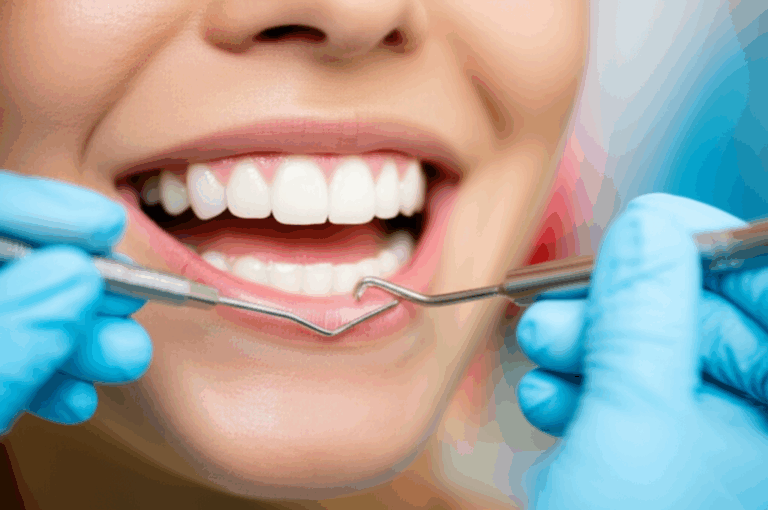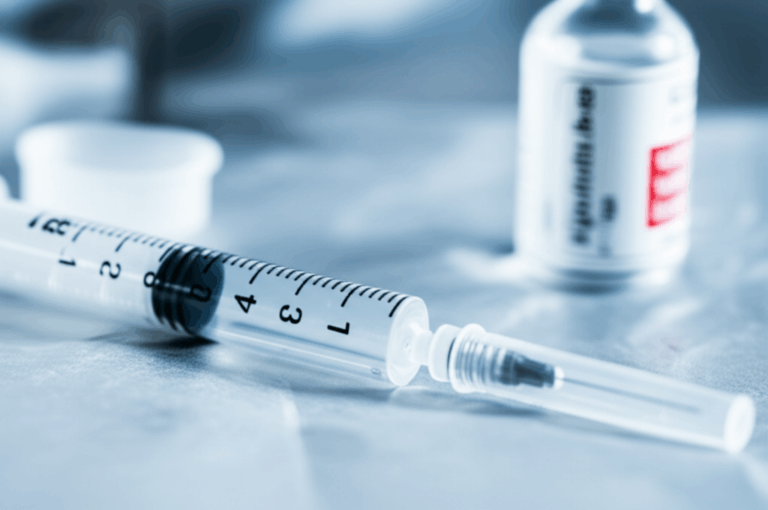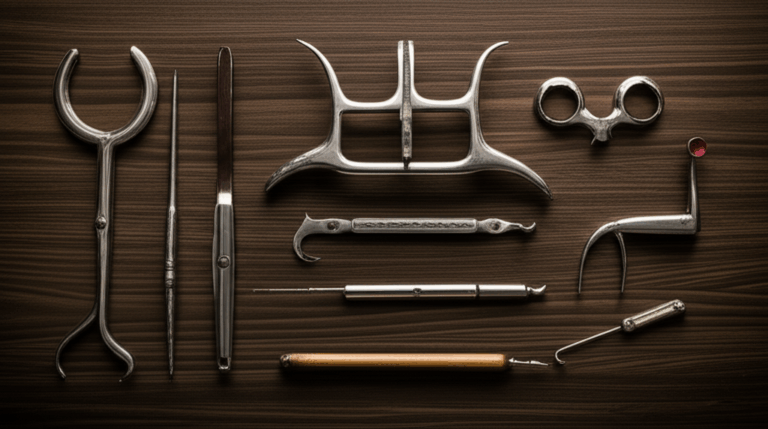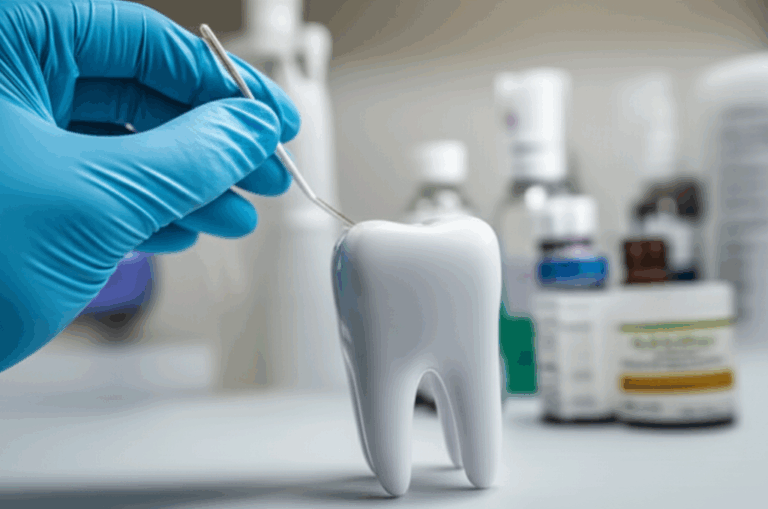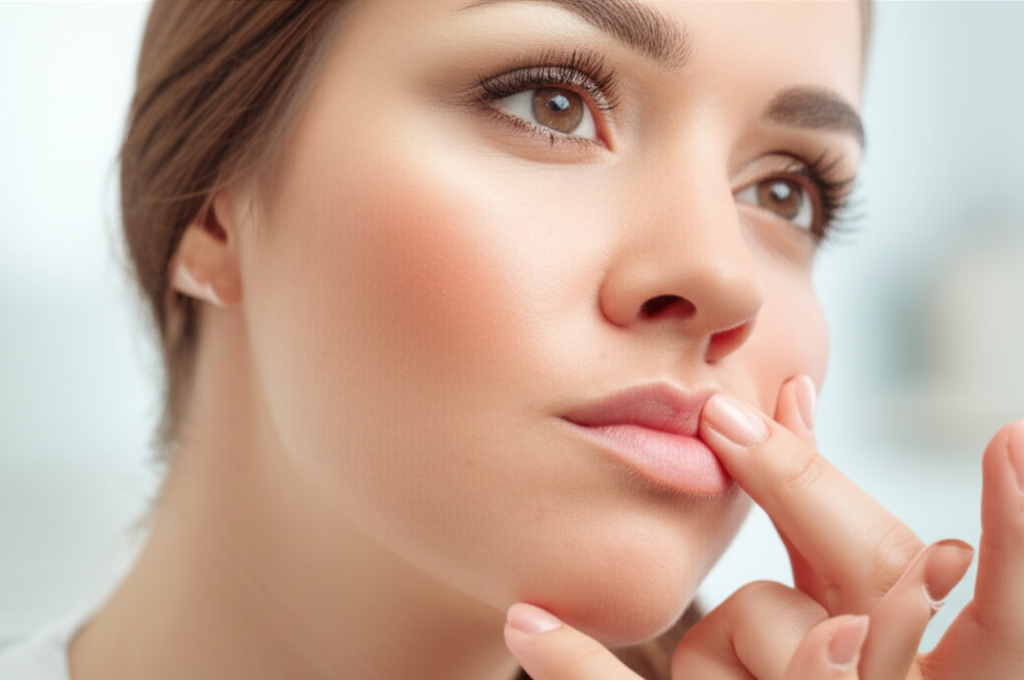
When Does Dental Numbing Wear Off? Your Friendly Guide to Anesthesia Duration
Have you ever left the dentist’s office with a numb face and wondered, “How long will this last?” This guide explains what happens after your dentist makes your mouth numb, why it lasts as long as it does, and how you can deal with that tingly, funny feeling. Plus, you’ll find easy tips to stay safe and comfy while you wait for normal feeling to come back.
Table of Contents
Introduction: Why Do Dentists Numb Your Mouth?
Let’s be honest—dentist visits can make anyone feel jumpy. I remember those first times I left the office with half my face feeling like it just got out of the freezer. Dentists use numbing shots to help take away pain and keep you cozy during dental work like filling a tooth, pulling it, or putting on a crown. Thanks to new dentist tools and training, the whole thing is safer and easier than before.
Problem: You finish your visit, but the numbness sticks around, and you can’t talk, eat, or even drink from a straw well.
Agitate: It makes you wonder if this is normal. Sometimes the tingling and numb feeling lasts much longer than you thought. You might even get a little worried, “Is something wrong?”
Solution: This guide gives you clear answers, easy tips, and real-life ideas to help you feel better as you wait for your mouth to feel normal again.
What Is Dental Numbing?
Dentists use special medicine called local anesthetics to block pain in your mouth. These drugs are put in with a shot near the area the dentist is working on, and they stop the nerves from sending pain to your brain. Some easy points:
- Local anesthesia is for a small spot—like one tooth, part of your gum, or the inside of your cheek.
- The most common medicines are Lidocaine, Articaine, Mepivacaine, Bupivacaine, and (not so much now) Novocaine.
- Local anesthesia does not put you to sleep. You can still talk and know what’s going on—you just can’t feel pain.
Fun Fact: Dentists used Novocaine for almost everything before, but now Lidocaine and Articaine are used more because they’re safer and work better for most people.
How Long Does Dental Numbing Usually Last?
Here’s the main question: “How long will I stay numb after my dental work?”
- For most fillings or fixes, numbness stays for 1 to 5 hours.
- You might feel your tooth “wake up” before your cheek, lip, or tongue do.
- Numbness in soft areas (lips, cheeks, tongue) can last longer than your tooth.
Check out this easy table:
| Dental Numbing Agent | With Vasoconstrictor? | Tooth Numbness Time | Lip/Tongue Numbness Time |
|---|---|---|---|
| Lidocaine | Yes (with Epinephrine) | 60–90 mins | 3–5 hours |
| Articaine | Yes (with Epinephrine) | 60–75 mins | 3–6 hours |
| Mepivacaine | Sometimes (with or without) | 20–90 mins | 2–5 hours |
| Bupivacaine | Yes, for tough cases | 1.5–3 hours | 4–8 hours (sometimes more) |
| Prilocaine | Yes (with Epinephrine) | 40–60 mins | 2–4 hours |
Table data checked by Dr. Joe Dental, DDS.
As you can see, the type of numbing medicine and if it has a vasoconstrictor (like epinephrine) makes a big difference.
What Makes Numbing Last Longer or Shorter?
Even if two people get the same shot, their time being numb can be totally different. Here are things that change how long it lasts:
- Type of Medicine Used: Different drugs last different times. For example, Bupivacaine lasts a lot longer than Lidocaine.
- Vasoconstrictors: Epinephrine makes numbness last longer and keeps bleeding down. If you can’t have it for health reasons, the numbness may fade quicker.
- How Much and Where It’s Injected: More medicine, or a deep shot near a big nerve, can make you numb longer than a small shot for one tooth.
- Your Body: Everyone’s body breaks down drugs slower or faster. Age, body size, your liver, and even nerves or stress can matter.
- The Kind of Dental Work: Pulling a wisdom tooth? Expect to be numb longer than a small filling.
- Drinking Water and Moving: These things help your blood flow, but only make a small difference.
Experts say: “There’s a lot of normal when it comes to how long numbness lasts. Some people get better in one hour, others in four or five,” says Dr. Joe Dental.
Types of Dental Anesthesia—What Did You Get?
Here’s a simple look at the types:
- Lidocaine (Xylocaine): Most common for everyday dental work.
- Articaine (Septocaine): Good at getting deep into tissue—great for upper teeth and tough areas.
- Mepivacaine (Carbocaine): Good if you can’t have epinephrine.
- Bupivacaine (Marcaine): Used if your dentist thinks you’ll hurt after, like with tough tooth pulls, since it lasts longer.
- Prilocaine (Citanest): Has special uses, especially for heart patients.
Ask your dentist what they used—knowing helps guess when your mouth will feel normal again.
What Should You Expect When the Numbness Wears Off?
It goes away slowly, not all at once.
- You might feel tingling, warmth, or a funny “pins and needles” feeling—like when your foot falls asleep.
- This happens in your lip, tongue, cheek, or even your nose!
- Sometimes, you’ll feel a little sore when feeling comes back. That’s okay, especially if you had teeth pulled or deep cleaning.
Here’s how it goes:
How Can You Make Numbness Go Away Faster?
Everyone wishes there was a quick fix. There isn’t magic, but a few small things help:
- Move your mouth gently: Open, close, smile, but don’t chew until you feel normal.
- Warm washcloth on your cheek (not hot!) helps blood flow and may help wash out the medicine.
- Drink water: Keeping hydrated helps your body do its job.
- Skip alcohol and caffeine: These don’t really help, even if some people say they do.
- Get some fresh air and relax—sometimes you just need a little time.
Golden Rule: Don’t poke or bite numb spots to “check” if you have feeling!
The best way to feel better fast is just to wait. Some modern digital dental labs use gentle ways that sometimes mean less numb feeling afterward.
When Should You Be Concerned About Prolonged Numbness?
Usually, numbness goes away in the normal time, but sometimes it doesn’t:
- 6–8 hours or more after dental work—even for hard jobs—is longer than normal.
- If you still can’t feel your mouth a whole day later, call your dentist.
- Do you feel tingling, burning pain, weakness, or “pins and needles” that won’t go away? It could be a nerve problem (called paresthesia).
- If you have bad swelling, a rash, or trouble breathing, get emergency help right away—especially if you think it’s an allergy.
Good news: Real nerve trouble is very rare. Dr. Joe Dental reminds us, “Nerve injuries don’t happen much, and most people get better by themselves.”
What Should You Avoid While Still Numb?
It sounds good, but don’t eat or have hot chocolate until your mouth is back to normal. Here’s why:
- Don’t chew on numb parts: You could bite your lip, cheek, or tongue without noticing.
- Avoid hot drinks: You can burn yourself without knowing it.
- Be careful brushing: It’s easy to hurt your gums when you can’t feel anything.
- Talking might sound weird: Just wait and enjoy your funny voice for a bit!
- Driving: Wait until you know you can smile, speak, and move your mouth right.
If you just got new crowns or bridges, a top crown and bridge lab makes sure things fit just right. But always be sure you’re not numb before eating hard foods—your nerves help protect you!
Tips for Kids (and Parents) Dealing with Numbness
Kids have small mouths and can forget not to chew on numb lips or tongue. Here’s what helps:
- Remind kids not to bite or suck on their lips and cheeks.
- Give soft, cold or room-temperature foods—like yogurt, applesauce, or smoothies.
- Watch them closely until feeling is back.
- Distract with funny stories, cartoons, or a nap—this helps time go by faster.
If your child had dental work like a filling or lost a baby tooth, let them know what’s happening. Tell them the weird feeling will go away soon. For tricky jobs, picking a good china dental lab can make trips to the dentist softer and easier.
Questions You Might Have (FAQ)
Q: Can numbness last all day?
A: That hardly ever happens unless you had a big surgery with Bupivacaine. Call your dentist if numbness is still there after 8 hours.
Q: Is it normal to be numb just on one side?
A: Yes, usually only the side where the numbing shot was is numb. The dentist numbs the area that needs it.
Q: Tingling started—is it wearing off?
A: Yes! Tingling, itching, or “pins and needles” means the medicine is leaving and your feeling is coming back.
Q: Can coffee help numbness go away?
A: Not really. Caffeine speeds up your heart, but it doesn’t make numbness fade much faster. Gentle mouth movement is better—and waiting.
Q: My child bit their lip while numb—what should I do?
A: Wash the area, give something cold, and avoid hot or spicy food. It should heal in a few days. If it’s deep or keeps bleeding, call your dentist.
Important Things to Remember
- Dental numbness is normal and helps you during your visit to the dentist.
- Usually, numbness lasts 1–5 hours depending on the medicine and your own body.
- You’ll feel tingly and funny as feeling returns—this is normal.
- Don’t eat, drink hot things, or chew until you have full feeling again, so you don’t bite or burn yourself.
- Call your dentist if numbness lasts over 8 hours, if you have pain, or if you see swelling.
- Parents: Always watch kids after dental visits.
- Pick a reliable dental lab like a dental ceramics lab for a better fit and more comfort.
If you’re ever not sure, just remember—your dentist is the right person to help you feel safe and healthy. Dental numbness is just a small part of getting a strong, pain-free smile!
Checked by Dr. Joe Dental, DDS—expert in family dentistry.

